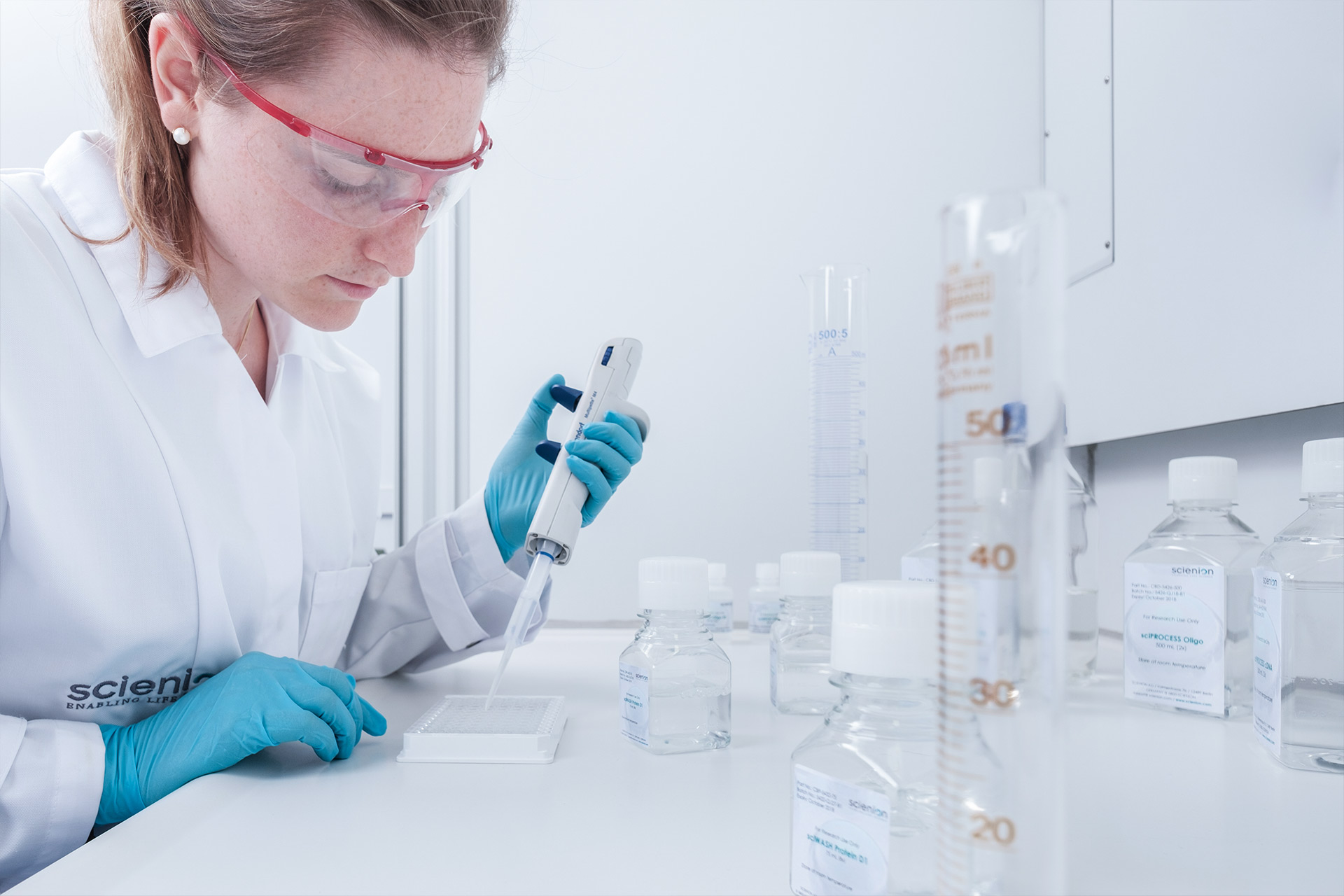Exploiting the Potential of
Glycan Microarrays
Introduction
Groundbreaking technological advances in automated oligosaccharide synthesis have led to rapid progress in glycomics research and carbohydrate microarrays offer versatile screening platforms to analyze the interaction of oligosaccharides with proteins of different kinds.
SCIENION has a longstanding collaboration with one of the pioneers of glycosciences, Prof. Peter Seeberger, Director at the Max Planck Institute of Colloids and Interfaces, and with the group of Prof. Véronique Blanchard, Charité – Universitätsmedizin Berlin, Institute of Laboratory Medicine, Clinical Chemistry and Pathobiochemistry.
The three partners successfully pursued the joint project “GLYCARDIAG” (GLYCan ARray DIAGnostics) which aimed at the development of a glycan-based microarray platform for In-Vitro Diagnostics.


“We focus on the automated synthesis of different kinds of complex oligosaccharides and carbohydrate microarrays play an important role in various parts of our research activities – as versatile screening platforms and potential future diagnostic tools. After comparing different dispensing systems we decided on the sciFLEXARRAYER S3 as it ideally meets our needs for the precise handling of small amounts of our precious substances and allows for the reproducible production of carbohydrate microarrays.”
Prof. Peter H. Seeberger, Max Planck Institute of Colloids and Interfaces

Together with MicroDiscovery GmbH, SCIENION carried out a feasibility study to analyze technical requirements for establishing a glycan-based diagnostic platform.
The focus was particularly on quality-assured production of the arrays and its automatic quantitative analysis. The encouraging results clearly demonstrate the potential of glycan-based rapid tests for diagnostics.
